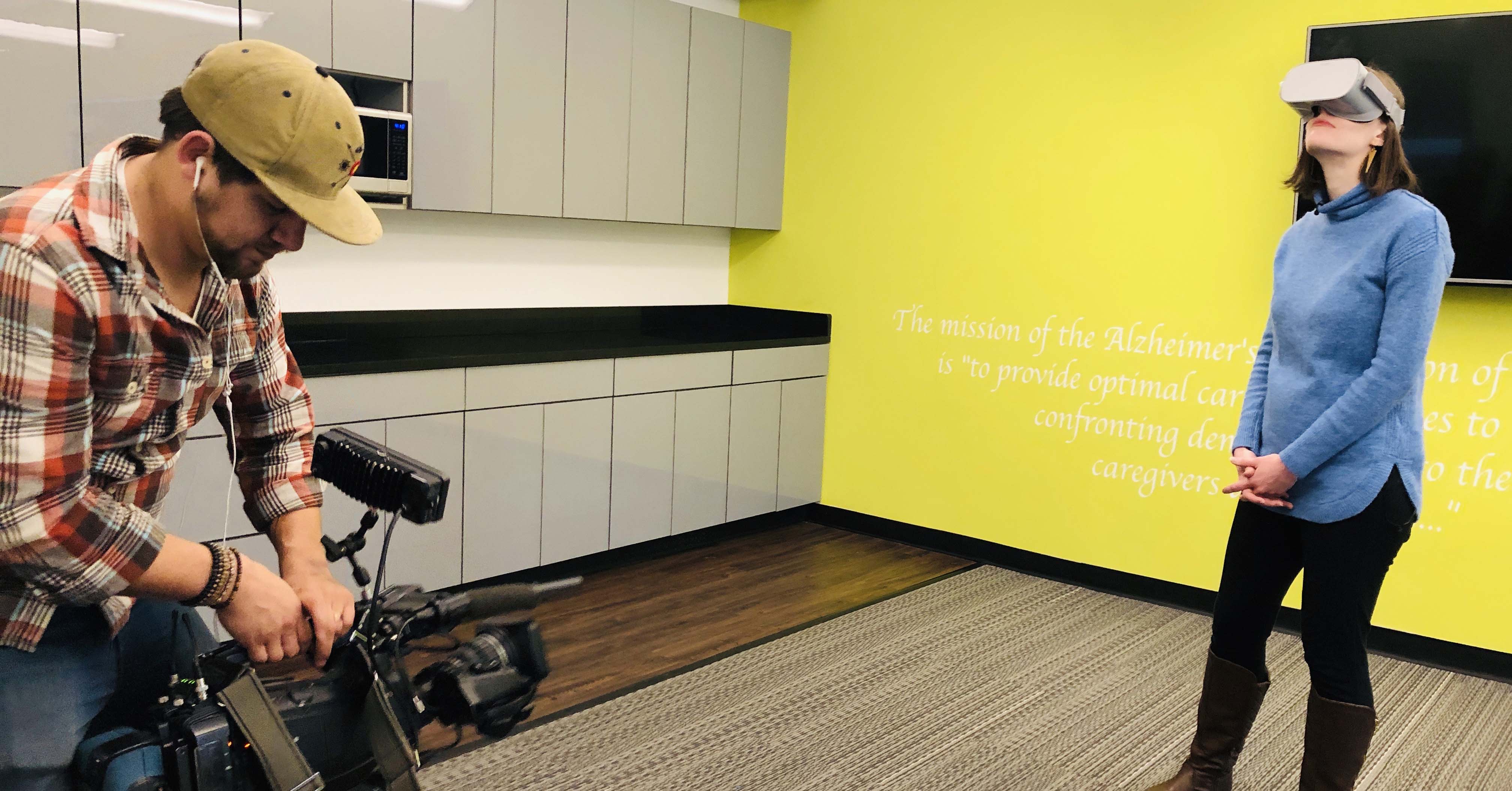If you care for or know someone living with memory impairment, be it Alzheimer's or another form of dementia, you know that it is a condition that is hard to understand. Although we may never fully comprehend what it truly feels like for the individual, there are many ways to learn compassion and how to care for the memory affected loved one in your life. This is a task that the Alzheimer's Foundation of America have taken on through their Care Connection Sunset Series, a program which involves briefly immersing its participants in a virtual reality world where you experience symptoms like blurred vision, hallucinations, and disorientation.
AFA Develops VR Tool for Understanding Dementia
Posted by Kelly La Rosa in Insider News, in Alzheimer's & Dementia
Nutrition & Dementia: 5 Tips for Successful Mealtimes
Posted by Funda Fernandez, BSN, RN in Health & Lifestyle, in Alzheimer's & Dementia
Nutrition, while important for every stage of life, can pose certain hurdles as we age. Physical changes in the body and possible health issues make obtaining the recommended daily nutrients a bit more complicated. Add to this a diagnosis of dementia and you may be required to come up with some creative approaches during mealtimes.
Every stage of dementia presents its own set of challenges. Familiarizing yourself with what is common during each stage and getting to know your loved one’s personal preferences can go a long way in supporting their health in the best way possible.
Art in the Park Trip with True Bridge Memory Care
Posted by True Care Staff in Insider News, in Alzheimer's & Dementia
Last month, a few clients and aides of our Memory Care program enjoyed a delightful day at Robert Wagner Park in lower Manhattan. The program's very first meetup, Art in the Park, was a great success. The participants and caregivers supported each other and painted beautiful landscapes with facilitator, Jodie Berman, Director of Programs and Community Engagement for True Care. They learned how to "paint what you see" as they overlooked a breathtaking view of the Hudson River and the Statue of Liberty. They also learned a paint technique called a "wash", where a layer of color is applied using diluted watercolor paint.
Renewing a Passion for Chess: A True Care Memorable Story
Posted by True Care Staff in Alzheimer's & Dementia
Meet Mr. Oka, an exceptional True Care client, who has been living with dementia for over 5 years. The relationship he has with his caregiver, Ansan, is truly special. She is his friend, someone he spends time with, learns with and, in this particular case, teaches chess.
Ansan has never played chess before meeting Mr. Oka. Being able to learn something new and switch roles with her client is something that she has sincerely enjoyed. "It feels [good] to learn something new," says Ansan. Watching them play chess is a remarkable experience. "Immediately Mr. Oka took on the role of being a teacher," says Director of Programs and Engagement, Jodie. "This was really a role reversal in caregiving."
Tips and Tools for Better Communication: Offering Choice in Conversation
Posted by Jodie Berman, MS, CTRS in Alzheimer's & Dementia
When working with a client or loved one living with memory loss, do you often hear the word “No” more than “Yes”? It can cause distress when you hope to engage or motivate someone but not get the response you expected, or get no response at all.
Open-ended questions can work well when establishing a dialogue. However, you can rephrase your questions and allow your client to express themselves best by providing a controlled choice . By doing this, you provide them the opportunity to make their own choices, which promotes their independence as well as providing the quality care they need.
What support systems are available when caring for a loved one?
Posted by Funda Fernandez, BSN, RN in Alzheimer's & Dementia, in Caregiver Corner
I was on my way to work when the driver overheard my phone conversation. After hearing I was a nurse who works with the geriatric population and specifically clients with dementia, he opened up about his particular situation as the sole caregiver for his mother who has dementia. I could hear frustration, fear, and weariness in his voice. He felt guilty about leaving her home alone and worried that she still insisted on driving even though he didn’t think it was safe. He also had several questions about the medications she was taking. He just needed someone to listen.









